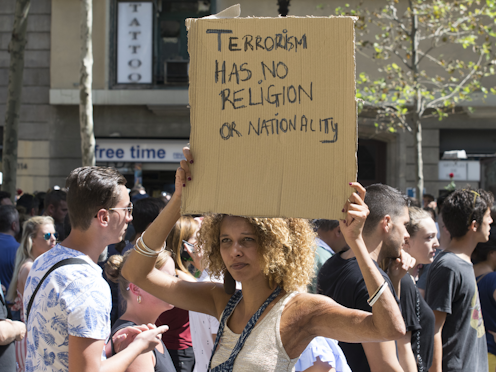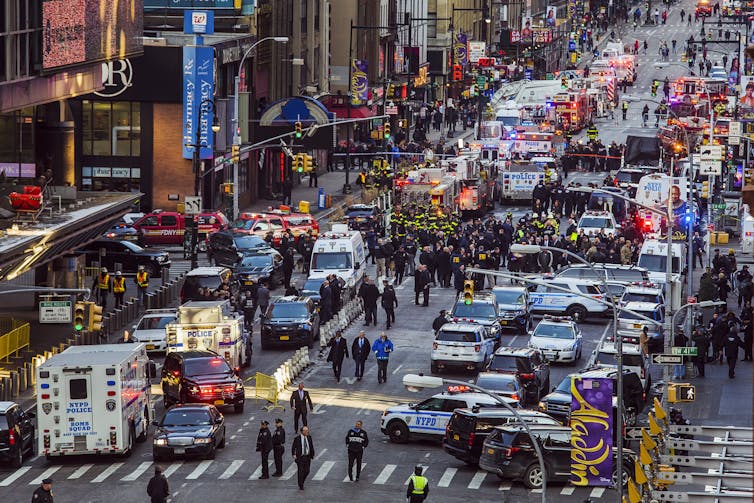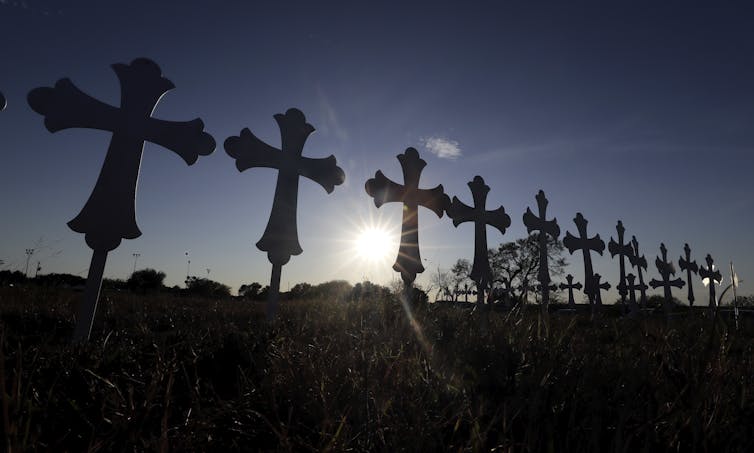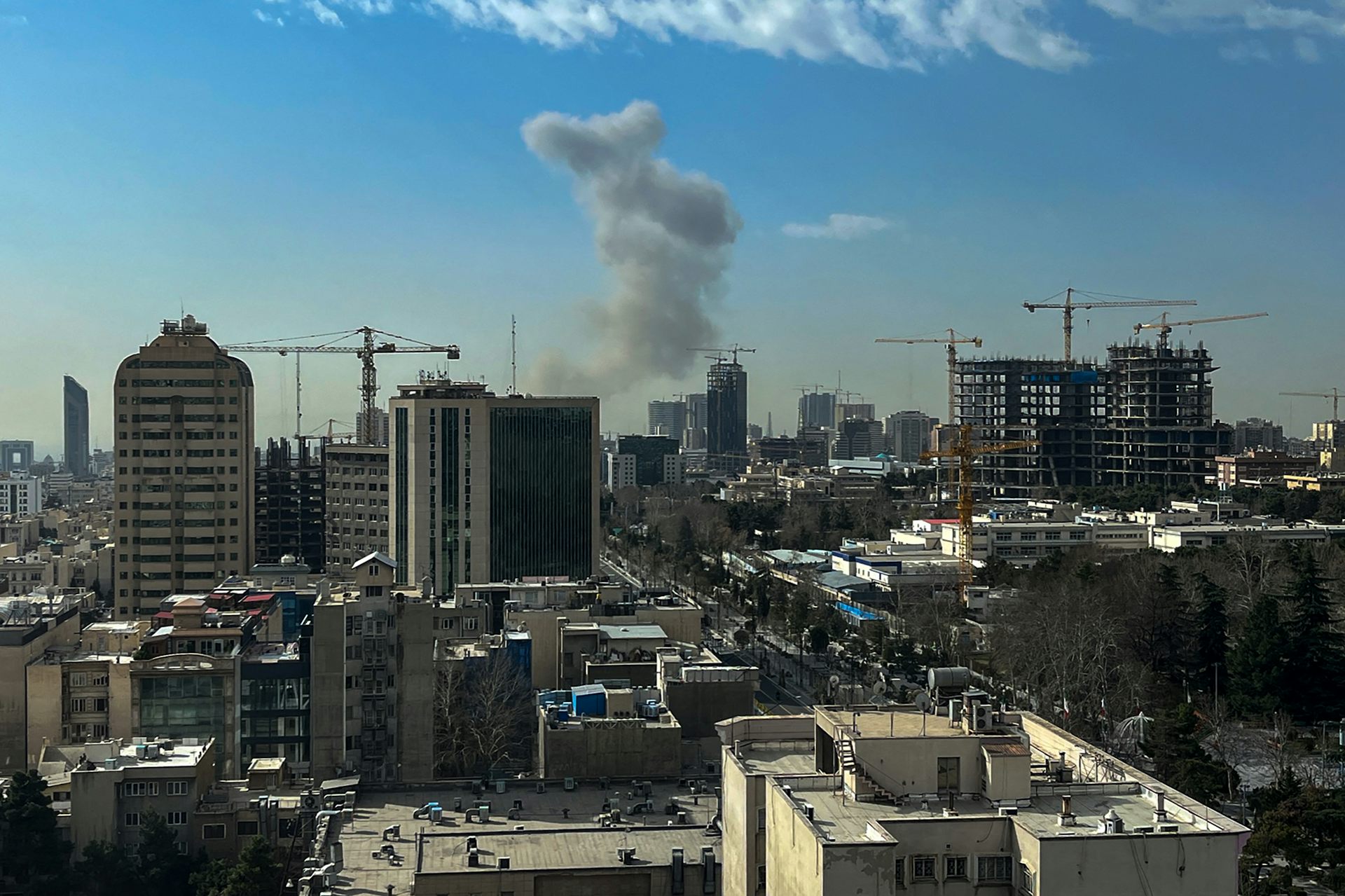The moral questions in the debate on what constitutes terrorism
A scholar asks: If two acts of violence kill similar numbers of people, have similar effects on victims and communities, and spread fear and terror, should they not be seen as equally abhorrent?

Akayed Ullah, a 27-year-old man, has been accused of detonating a pipe bomb strapped to his body in a New York subway, injuring four people on the morning of Dec. 11. The Joint Terrorism Task Force is investigating the attack and New York Mayor Bill de Blasio said it was “an attempted terrorist attack.”
Just over a month ago, when Sayfullo Saipov killed eight people in New York on Oct. 31 by driving a truck through a bicycle path, it was called a terrorist act within a few hours.
In contrast, Devin Kelley, who killed 26 people in a church in Texas, was not called a terrorist. Like many mass shooters, he had a history of domestic violence. His motivation was supposedly rage at his ex-wife.
This distinction between terrorist and nonterrorist mass killers is not new. The Pulse Nightclub shooter in Orlando and the San Bernardino shooters were quickly labeled terrorists, but not the Sandy Hook shooter or the Las Vegas shooter. Dylann Roof, who killed nine African-American churchgoers in 2015, was labeled a terrorist by some commentators but not others.
Going by the accepted definitions of terrorism, some mass killers are terrorists but others are not. But, from my perspective as an ethicist and scholar of terrorism this raises some ethical questions: Is this distinction applied fairly? And are there moral differences between terrorist and nonterrorist violence?
The significance of the label ‘terrorist’

Calling an act “terrorist” has huge implications: Terrorism is often depicted as a serious threat justifying radical counterterrorism measures, including mass surveillance, immigration bans and even torture.
In addition, the label “terrorist” often expresses a particularly strong form of moral condemnation. Philosopher Michael Walzer, for example, calls terrorism “indefensible” because it targets innocent people and creates fear in everyday life. While we condemn all murders, terrorist murders are often regarded as particularly morally reprehensible.
So in thinking about whether Ullah, Saipov and other mass killers are terrorists, two questions arise: Do their actions meet an accepted definition of terrorism? And is there something about their actions that justifies strong moral condemnation and radical preventive measures?
What is terrorism?
Let’s first consider whether Ullah’s and Saipov’s actions count as terrorism.
Leading philosophers, such as Igor Primoratz and C. A. J. Coady, define terrorism as politically or ideologically motivated violence targeting innocent people. Other scholars, such as Robert Goodin, include the intention to spread fear.
According to some reports, Ullah was “inspired by the Islamic State.” Saipov also, like the Pulse nightclub shooter, apparently claimed allegiance to the IS. Although he acted alone, his motivation seems ideological, he killed innocent people and spread terror. Dylann Roof also plausibly fits this definition of terrorism because he was motivated by an ideology of racial hatred, despite not being charged with domestic terrorism.
In contrast, the Texas church shooter Kelley was apparently not ideologically motivated, even though he too killed innocent people and spread terror. So labeling some killers “terrorist” helps distinguish their motivation from killers like Kelley.
Comparing terrorists and other killers

But do terrorists deserve stronger moral condemnation than other mass killers? Many might argue that terrorists are particularly abhorrent for two reasons: One, ideologically motivated violence threatens innocent lives more than other forms of violence, and two, terrorism involves “the intrusion of fear into everyday life.” Reasons like these are taken to justify a range of U.S. counterterrorism responses.
I disagree.
Between December 2001 and December 2015, five terrorist attacks killed 24 people. If we include the 2016 Orlando shooting, the deadliest attack since 2001, the toll would be 73 over a 15-year period. In contrast, in the same time span mass shootings killed approximately 500 people each year. And what is more shocking, between 2003 and 2014, over 5,000 women were murdered in domestic killings. The truth is, one in four women will experience severe domestic violence in her lifetime.
However, I agree that terrorists undermine our basic sense of security. Terrorism has serious long-term effects on victims and communities. As philosopher Karen Jones explains, victims of intentional violence are more likely to be “psychologically devastated” than victims of natural disasters or accidents.
But this is true of mass killers who are not labeled terrorists. Mass shooters have killed people in churches, cinemas and schools. Like terrorism, mass shootings cause profound harm to victims and communities.
This is also true of domestic violence. Domestic violence severely harms women’s physical and mental health, harms children and undermines women’s ability to feel safe in their intimate relationships. For scholar Jay Sloane-Lynch, these are reasons to “recognize domestic abuse for what it truly is: terrorism.” Other philosophers, such as Claudia Card, agree.
The problem of inconsistency

Even though domestic killings and nonterrorist mass shootings kill more Americans than terrorism and undermine our security, these acts typically don’t lead to calls for radical preventive measures, such as new gun control laws. Indeed, in some cases, gun laws are relaxed, rather than tightened, after a mass shooting.
From an ethical perspective, that’s a problem. If two acts of violence kill or injure similar numbers of people, have similar effects on victims and communities, and spread fear and terror, we, as a society, should see them as equally abhorrent, regardless of whether they are ideologically motivated. And we should see the goal of preventing such acts as equally urgent.
But, as I see it, most of us don’t. And that’s unfair. It’s unfair to the victims of mass killers and domestic violence, whose safety and security are not regarded as warranting the same outrage and demand for radical preventive measures that terrorist killings call for.
Jessica Wolfendale does not work for, consult, own shares in or receive funding from any company or organisation that would benefit from this article, and has disclosed no relevant affiliations beyond their academic appointment.
Read These Next
Iran will respond to US-Israeli strikes as existential threats to the regime – because they are
The latest attack on Iran goes far beyond previous operations by Israel and the US in both scale and…
Cuba’s speedboat shootout recalls long history of exile groups engaged in covert ops aimed at regime
From the 1960s onward, dissident Cubans in exile have sought to undermine the government in Havana −…
AI’s growing appetite for power is putting Pennsylvania’s aging electricity grid to the test
As AI data centers are added to Pennsylvania’s existing infrastructure, they bring the promise of…






